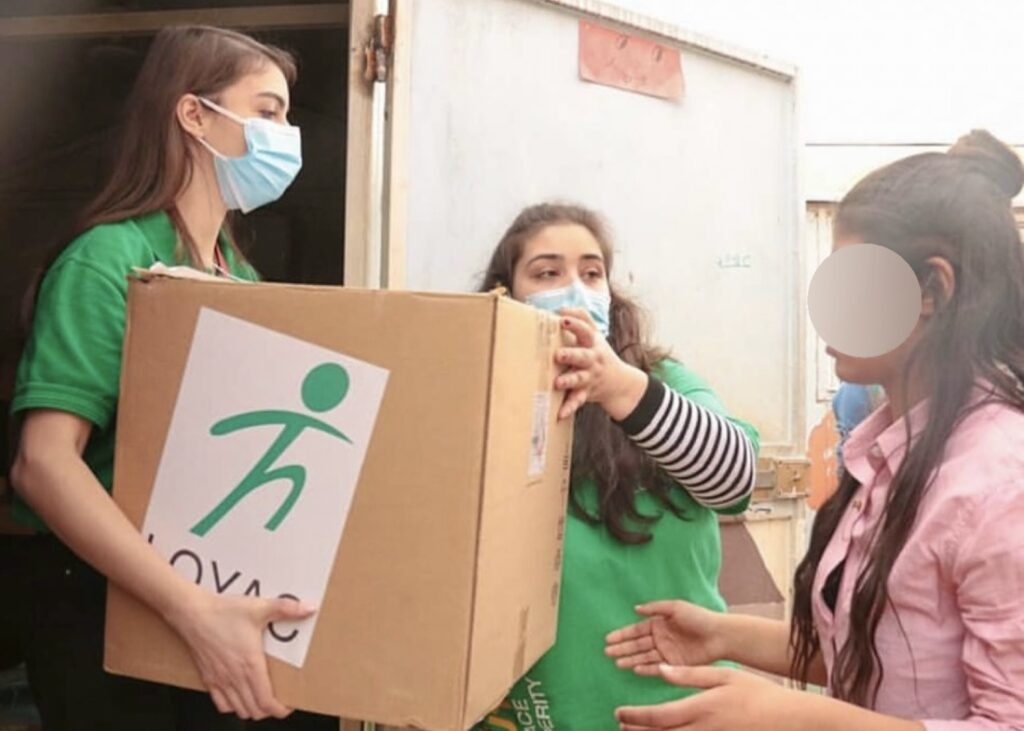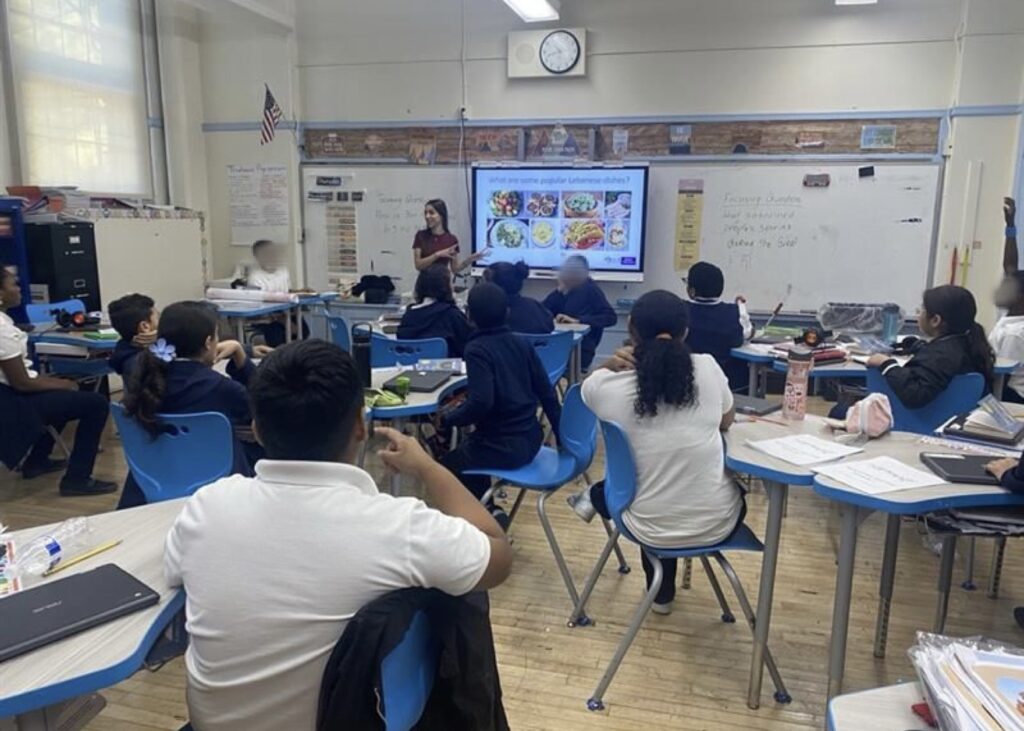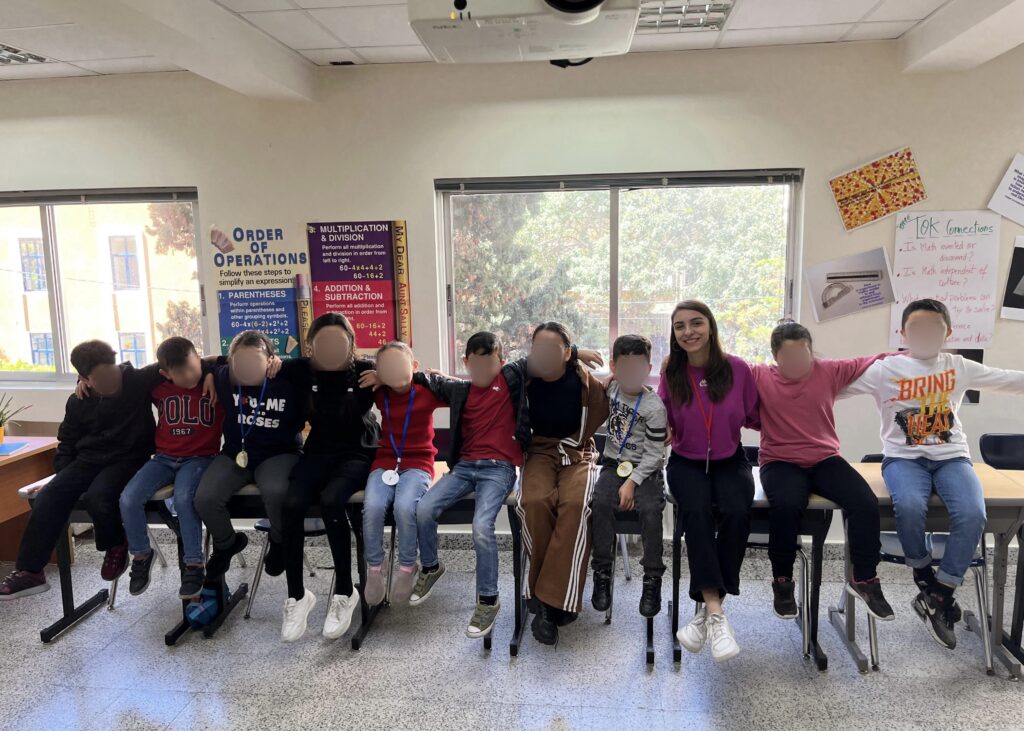“Anyone can create positive change, all it takes is a single decision and the determination to follow through.”
These words encapsulate Alissar’s inspiring journey as an activist and humanitarian worker. In this interview, we catch up with her to see how her story has evolved since “If I Can, So Can the World.” Has her dream changed? Let’s find out.
This article is split into two parts, and here is the first half.
(If you haven’t read the original article, “If I Can, So Can the World,” you can catch up here [LINK])
Support the founder to implement Aflatoun nationwide.
Thank you so much for joining us again!
My name is Karen, and I am the interviewer. Are you in New York right now?
Yes, I’m in Manhattan, New York City, working on my master’s degree.
How has life been there? New York must be quite the change!
It’s overwhelming at times but also so full of excitement and opportunities. It’s a big shift, but it’s been amazing!
That sounds great! I am looking forward to listening to your updates and reflections.
Witnessing Injustice: The Motivation Behind Alissar’s Work
You’ve spoken about witnessing many injustices growing up, which led you to start volunteering at 15. Can you tell us what motivated you to take that courageous step?
Growing up in Lebanon, I was exposed to stark contrasts in how people lived. In just 10 minutes, the scenery could shift from affluent neighborhoods to impoverished areas, struggling with limited resources and infrastructure. This disparity deeply affected me, and it became clear that something had to change. I felt a strong urge to contribute in any way I could.
That’s when I began volunteering. Although I never formally studied education, I was drawn to it from a young age. Through working with children, I discovered my passion for education and the importance of providing quality learning opportunities for everyone, regardless of their background. This became my mission, and it’s what drives me to this day.
Could you share some of your experiences from volunteering?
I started volunteering with an NGO called LOYAC. With them, I had the opportunity to teach classes to refugee children. The program offered a wide range of activities, from sports and handicrafts to academic subjects like math and science during the school year.
One of the most impactful experiences for me was during an intensive summer program. I led sessions on human rights through art for children typically aged between 8 and 13. For instance, I’d introduce concepts like peace or security and then encourage the children to express these ideas through drawing, painting, or other creative activities. It was a meaningful way for them to engage, reflect, and have a voice.

Could you share the most difficult challenges you faced while working with LOYAC?
One of the biggest challenges I encountered was the vast gap in their lives. Many of these children left their countries with nothing and had witnessed things that no one should ever have to see. They often expressed their experiences through art and in our conversations. It was heartbreaking, but it also created a safe space for them to process and share their emotions.
At the same time, I tried to teach them about human rights, hope, and the potential they hold for their future. It was important to show them that, despite everything they had endured, they have dreams and opportunities to look forward to.
You also mentioned volunteering in Turkey. Could you tell me more about that experience?
Yes, I volunteered in Turkey during my Erasmus program, where I spent almost a year. I started my own speaking club and also volunteered in community schools, assisting teachers. The most impactful part of my experience was with the speaking club, where I brought together a group of young adults for various cultural and language exchange activities. We organized a range of sessions, including theater, and it was incredible to see about 60 young people come together and engage in these activities.
What’s the most memorable experience from your time volunteering in Turkey?
Honestly, the entire experience was memorable. I’m still in touch with many of the people I met there, and we sometimes visit each other. They welcomed me and introduced their true culture. For example, they invited me into their homes and shared food. It was all about bridging cultures and bringing people together, which made the experience even more meaningful.
That’s wonderful! Cultural exchange is such a meaningful experience. Have you continued volunteering since your time in Turkey?
It really is the best thing ever! After returning from Turkey to Lebanon, I definitely continued volunteering, along with getting involved in other meaningful activities.
Continuing Impact in Lebanon
What kind of activities or initiatives have you been involved in since then?
After returning to Lebanon, I got involved with the Aflatoun program. This program teaches children about social and financial topics such as gender equality, environmental protection, and financial literacy. We adapted the curriculum to fit the context of Lebanon and held classes every Saturday during the winter. This experience was incredibly meaningful to me.
At the same time, I worked on projects with the public library in my hometown. This was a separate initiative, aimed at providing educational support during a tough period when there were oil, fuel, and electricity shortages, causing many schools to close temporarily. The library project helped build strong connections within the community by offering resources and support for children and families during this difficult time.
Current Projects in New York
How has your work evolved since moving to New York?
Since moving to New York, I’ve gotten involved with an organization called One to World. They have a program called the Global Classroom Program. Through this program, we visit schools chosen by the organization, and we prepare presentations and activities with the mentors beforehand. I presented everything about Lebanon and chose to focus on refugees, migrants, and internally displaced people. I aimed to relate these topics to the students’ own experiences, as there are many migrants and people from diverse backgrounds here in the U.S. We started by introducing our culture and sharing relevant information, and then we discussed the chosen topic and how it connects to the SDGs. It was a great way to help students understand global issues through a more personal and relatable lens.

Are there other activities or new initiatives you’ve been involved in recently?
Right now, my main focus is the Global Classroom Program. It’s been a fantastic opportunity, but that’s not the only initiative they offer. They have many other volunteering opportunities, like organizing food drives where people pack meals to distribute or taking part in community cleanups. So, I am actively involved with this organization, but I’ve also joined different clubs at the university.
What kind of clubs are you involved in at the university?
At the university, I’m mainly involved with the Arab Students Union and the International Student Association. The Arab Students Union focuses on cultural exchange and community-building through activities like dance, crocheting, handicrafts, and teaching about Arab culture. It’s a wonderful way to bring people together.
On the other hand, the International Student Association is more global, with members from all over the world. They organize activities around major holidays, like Halloween and Thanksgiving, especially for international students who might not have family here. It’s a great way to connect and support each other.
Do you enjoy being involved in these communities?
It’s really nice. I love meeting new people, especially from different countries and cultures, and exchanging experiences and knowledge. It’s truly what I enjoy most. This passion also ties into my master’s program, which focuses on public policy and administration, with an emphasis on emergency response and international development. Everything I do, both academically and outside of school, aligns with my commitment to social change and international work.

To be continued …

